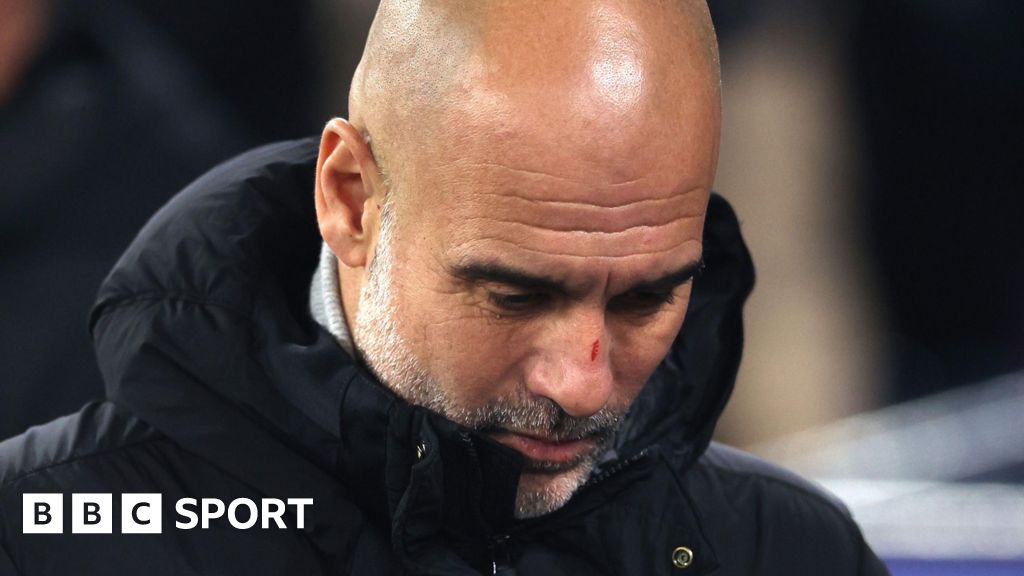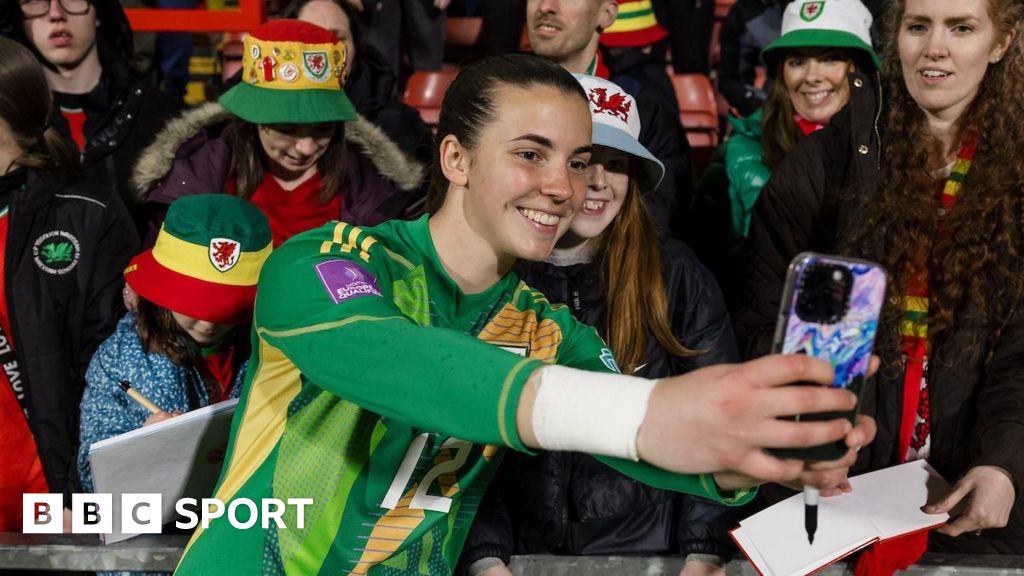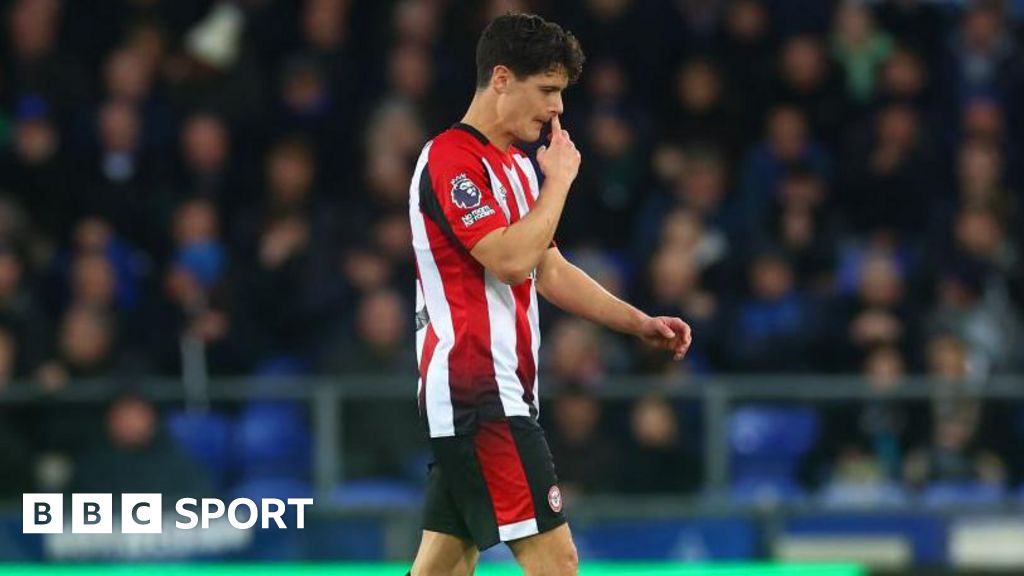ARTICLE AD BOX

I always think the easiest thing a manager can do in football is to pick and organise a team that is tenacious and will give you everything - but that is not proving easy for Manchester United boss Erik ten Hag at the moment.
United were very poor when they were on the ball during the first half of their 3-0 home defeat by Tottenham on Sunday, but they were even worse without it - and that should be a much bigger concern.
I was surprised when Ten Hag came out after Wednesday's Europa League draw with Twente and agreed that the Dutch side "wanted it more" but I assumed that we would see a reaction to that against Spurs.
Ten Hag was basically telling his players that lack of hunger was unacceptable, and things had to change at the weekend... but clearly the penny has not dropped.
The least I expected against Tottenham was a really fired up United side but that mindset was missing at the start of the game, and things quickly got worse for them from there.
No pressing should not be a problem
When I watch United, I can at least see what Ten Hag is trying to do when his team have possession, but what they do without the ball is just as important.
By that, I mean how organised they are, and how determined they are to keep the ball out of their net.
People sometimes confuse that effort and application with pressing, but a team can set up in all sorts of ways and still have the determination and fighting spirit they need.
So it is not as simple as saying United struggled defensively against Spurs because they were not pressing or running all over the place. They were not set up to do that, but that in itself should not have been a problem if that's the way they wanted to play.
They started with Bruno Fernandes and Joshua Zirkzee as two false nines, or two number 10s if you prefer, and asked them to fill the space in front of midfield so they were not dominated in there.
By doing that, they gave the ball up to the Tottenham back four, which is not the end of the world.
Being switched on and physically ready for the opposition is not necessarily about going after the ball and putting the Spurs defenders under pressure.
Instead, it is about winning duels, tracking runners, not letting men get across you and spotting danger - even if it is inside your own half.
United's set-up meant they could still press on occasions, such as in the wide areas when Spurs goalkeeper Guglielmo Vicario was on the ball, but the idea was that in general play they made themselves harder to play through.
That lasted less than three minutes, because the first goal they conceded was a ridiculous one.
It was a brilliant run by Micky van de Ven, but there was no way he should have got that far up the pitch without being challenged or even manhandled.
It was phenomenal pace and power, not amazing skill, and Van de Ven ran through some huge holes before Diogo Dalot just switched off to allow Brennan Johnson to run off the back of him to get on the end of the cross.
Spurs get rewarded for their bravery
Manchester United 0-3 Tottenham: 'Not a red card' - Erik ten Hag on Bruno Fernandes
After going 1-0 down, United were losing the ball, losing challenges, being beaten in duels and finding it hard to play out. They were not tracking runners and did not know who to mark.
In short, they were a total mess.
Tottenham could have been 3-0 up by the time Bruno Fernandes was sent off before half-time – which was a harsh decision by the way – and the game should have been done.
Spurs manager Ange Postecoglou has been criticised for being too bold in some games, but his team try to win games by playing adventurous football high up the pitch and, against United they were rewarded for their bravery.
That started with the progressive passing we saw from their centre-halves, and one of the reasons Spurs dominated the first half was because they were really confident in what they were trying to do.
United had a plan too, but they have had to adapt without the injured Rasmus Hojlund, who is the only out-and-out striker they have got. He came on late in the game against Spurs but is not fully fit after a hamstring injury.
They have used two number 10s like they did on Sunday before and done OK, playing on the counter-attack and using their rapid wingers.
It got them a couple of chances against Spurs too, even though they were not playing well, so it would harsh to say they don't have ideas or look like they work on anything when they have the ball.
Instead, in contrast to Spurs, I think a lack of confidence in their patterns of play is their main issue when they play out from the back.
Part of that is down to the fact United have been constantly changing their team - their centre-halves Matthijs de Ligt and Lisandro Martinez had only partnered each other three times before Sunday, for example.
I actually think that side of things will improve as their players get used to each other, because we know they are good enough.
Manchester United 0-3 Tottenham: Maddison foul 'never a red card' - Bruno Fernandes
It is the team's mindset which is more of a worry for me.
You can’t have the confidence you need to play through the lines and bring the ball out from the back if you are always so worried about conceding.
The bits they have to do without the ball are the foundation for what they do when they get it and, unless they improve out of possession, then they won’t get that right either.
Ten Hag actually fixed it in the second half against Spurs, with United trailing 2-0 and down to 10 men, when he brought on Casemiro and Mason Mount.
There was a spell where United centre-halves were coming up to the halfway line and putting Dominic Solanke and James Maddison under pressure, and it gave United a platform to create more chances themselves.
Everyone was fighting hard because they had nothing to lose, so it can be done - but where was that when it was 11 versus 11? That is the question Ten Hag should be asking his players this week.
Danny Murphy was speaking to BBC Sport's Chris Bevan.

 1 month ago
12
1 month ago
12








 English (US)
English (US)